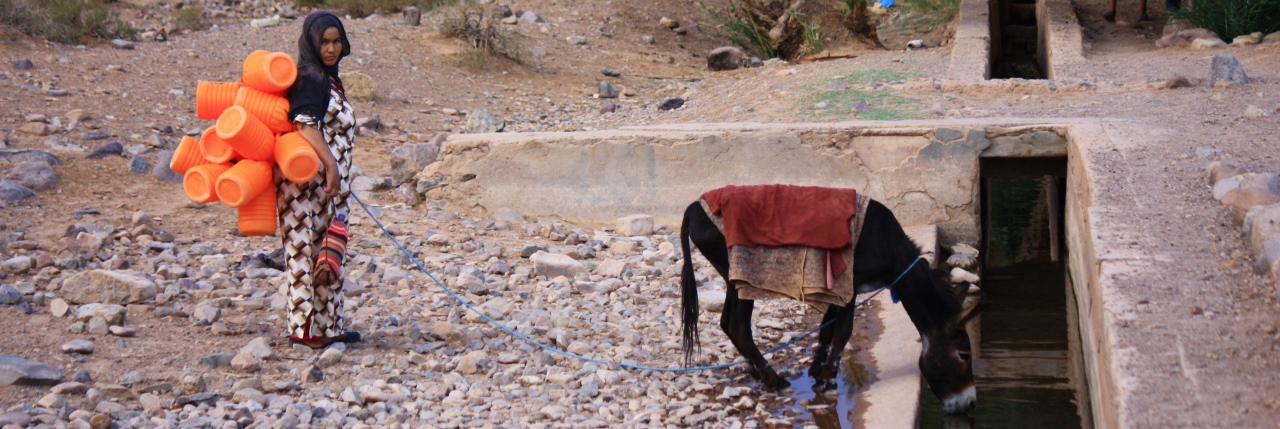Climate Change in Morocco
It is fitting that COP22 is being held in Morocco, which helps raise attention to the many climate change challenges faced by Morocco and the larger Middle East and North Africa (MENA) region.
It is one of the world’s driest regions and is increasingly vulnerable to climate change, water scarcity and extreme heat that affects populations largely dependent on agriculture. Urban coastal areas are also prone to floods.
The MENA region is a prime example of one in need of adaptation solutions.
For example, the oasis zone in southern Morocco – home to 1.73 million inhabitants – has already been hurt by recurrent droughts, an arid climate and overuse of natural resources. Climate change exacerbates these conditions, bringing water scarcity and extreme weather events to the forefront.
A US$ 9.97 million project funded by the Adaptation Fund and implemented by its accredited National Implementing Entity (NIE) for Morocco, the Agency for Agricultural Development (ADA), is underway in the country to improve populations’ adaptability in the oasis areas. The project is aimed at enhancing the adaptive capacities of the water sector, diversifying income sources and improving living conditions of people living in these vulnerable areas, as well as improving the ecosystems’ resilience to climate change.
The Adaptation Fund also funds a US $9.22 million project in the same region, in Jordan that is implemented by the NIE, Ministry of Planning and International Cooperation (MOPIC) to adapt the agricultural and water sectors to climate change through sustainable technologies.
Collective Action in MENA to Adapt to Climate Change
Furthermore, three Multilateral Implementing Entities are implementing other climate adaptation projects funded by the Adaptation Fund in the region, in Lebanon through the International Fund for Agricultural Development, in Egypt through the World Food Program, and in Eritrea through the United Nations Development Program.
The Adaptation Fund also held two recent regional climate finance readiness workshops in Morocco, one in Casablanca in May 2016 for the Francophone region of Africa and another in early September 2016 in Rabat for the MENA region. The workshops were aimed at sharing country experiences and best practices with the Fund’s accreditation and project development processes, with the hope of establishing additional NIEs to reach more vulnerable populations in the region with urgently needed climate adaptation solutions.
The workshops also helped raise attention for the importance of COP22 being held in Morocco, and accelerating its implementation to help meet the growing adaptation needs of developing countries in the region and beyond.



